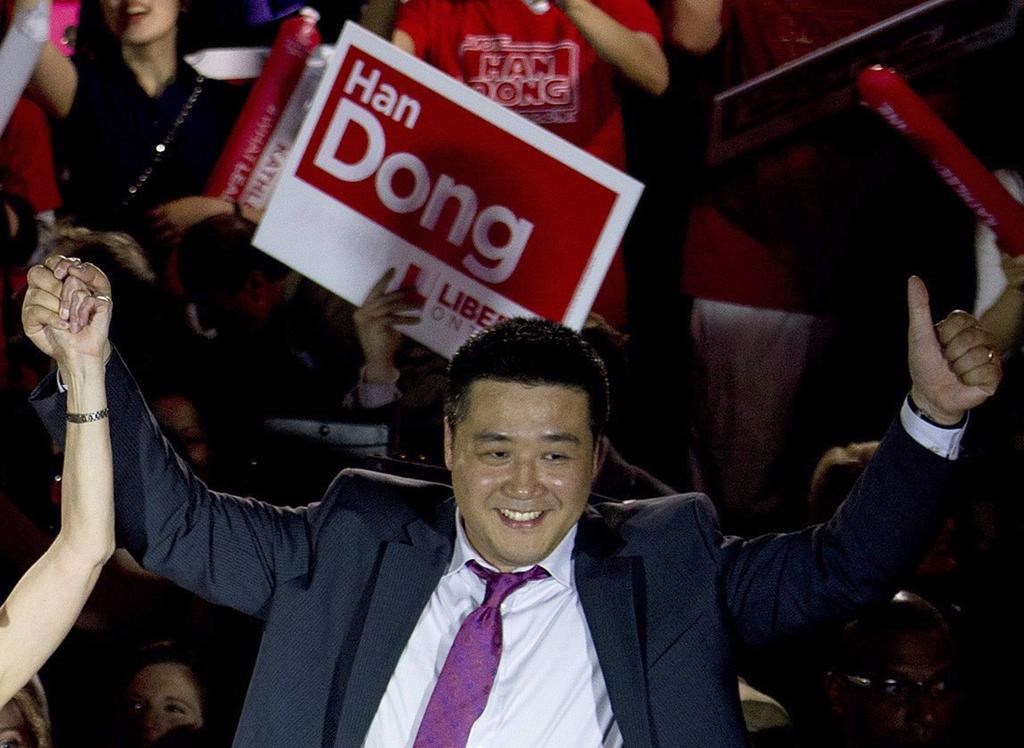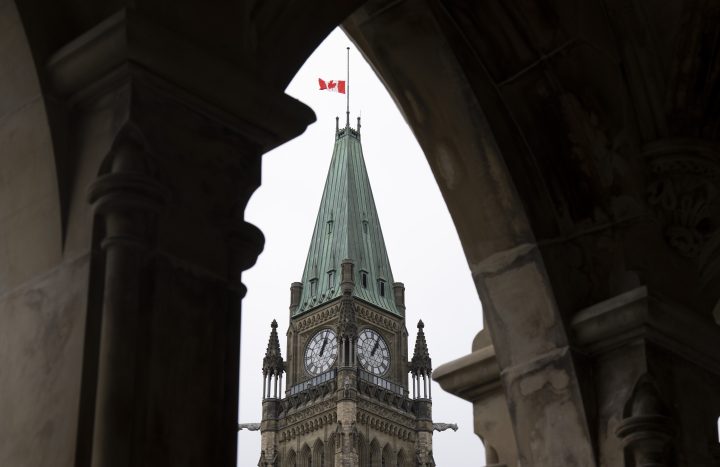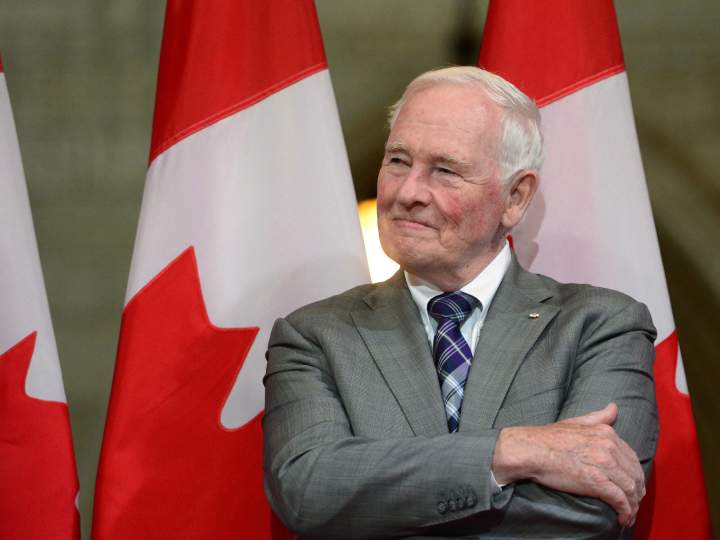
By
Sam Cooper
Global News
Published March 22, 2023
6 min read

Liberal MP Han Dong, who is at the centre of Chinese influence allegations, privately advised a senior Chinese diplomat in February 2021 that Beijing should hold off freeing Michael Kovrig and Michael Spavor, according to two separate national security sources.
Both sources said Dong allegedly suggested to Han Tao, China’s consul general in Toronto, that if Beijing released the “Two Michaels,” whom China accused of espionage, the Opposition Conservatives would benefit.
At the time, the two Canadians had been in Chinese custody for over two years. However, it was widely perceived that they were jailed in retribution for Canada’s detention of Meng Wanzhou, the Huawei executive facing extradition to the United States.
Dong also allegedly recommended that Beijing show some progress in the Kovrig and Spavor cases, the two sources said. Such a move would help the ruling Liberal Party, which was facing an uproar over China’s inhumane treatment of Kovrig and Spavor.
Dong, who represents the Toronto-area riding of Don Valley North, was the one to initiate the discussion with the consul general, the two sources said, adding that Dong stipulated at the outset that it was both a personal and a work-related conversation.
In an emailed statement to Global News sent Tuesday, Dong confirmed that he had a discussion with Consul General Han, but disputed that he initiated it and also denies that he advised Beijing to delay releasing Kovrig and Spavor from prison.
“I raised the status of Michael Spavor and Michael Kovrig and called for their immediate release,” he wrote.
“At every opportunity before they returned home, I adamantly demanded their release to Canada without delay. Any suggestions otherwise are false and are attempts to mislead you and your readers, and slander me.”
In an emailed statement, The Prime Minister’s Office said it “only became aware that a conversation took place after Mr. Dong told us, following recent media questions.”
In addition, PMO spokeswoman Alison Murphy suggested that the MP was not acting at the behest of his government. “At no time was Mr. Dong ever used as a ‘back channel,” she wrote in the statement.
At the time of the conversation between Dong and the Chinese diplomat, Canadians were outraged that Spavor and Kovrig were held captive in secret Chinese prisons without due legal process and denied basic rights such as consular access.
Throughout 2021, then-Conservative leader Erin O’Toole unsuccessfully pressed Prime Minister Justin Trudeau to take a hawkish stance with Beijing and suggested Ottawa use the threat of sanctions to secure Kovrig and Spavor’s freedom.
Beijing favoured the re-election of Trudeau’s Liberals in the 2021 election, the two national security sources informed Global News, citing CSIS reports.
But at the same time, they said, Beijing was “hedging” by secretly aiding several Conservative candidates to support its stances and attacking other Tories whom it deemed to be critics of the Chinese Communist Party.
Last June, O’Toole said Beijing’s meddling was to blame for the loss of up to nine Conservative candidates in the 2021 federal election.
“We lost eight or nine seats to foreign interference from China,” said O’Toole.
Government officials, however, have maintained that interference did not impact the overall integrity of the contest.
While there have been a series of revelations about Chinese interference in Canadian affairs since Global News broke several stories in late 2022, the conversation between Dong and Consul General Han illustrates how political interference is not just affecting institutions but also has an impact on people – in this case, with two lives at stake, one of the two national security sources said.
CSIS investigates and gathers intelligence on foreign-state activity in Canada from human sources, surveillance of meetings and electronic interceptions.
Global News has granted anonymity to sources on the Dong investigation because they face possible prosecution for sharing information on China’s allegedly vast subversion of Canada’s democracy, including clandestine interference in the 2019 and 2021 federal elections.
When the February 2021 conversation occurred between Dong and Consul General Han, CSIS reporting had already classified Dong as a “close friend of the Consulate based on his history of calls,” the national security official said.
Apart from the discussion about the Two Michaels, the two sources said Dong and Consul General Han allegedly spoke at length about China’s problematic reputation in Canada, as well as discussing perceptions of human rights accusations against Beijing.
Following the February conversation between the consul general and the MP, sources say that CSIS questioned whether or not Dong was acting outside of appropriate diplomatic channels.
CSIS also deliberated whether or not the conversation proceeded because he believed it was within his purview as an MP to find solutions, the sources said.
Concerns regarding the Dong communications were briefed up to CSIS management in Ottawa, the two sources said.
It remains unclear whether or not CSIS has ever conveyed them to the Prime Minister’s Office or anyone else in the federal government.
When asked to comment on the information provided by sources on the alleged Dong communications, CSIS spokesperson Eric Balsam wrote in a statement that the service could neither confirm nor deny the authenticity of the information.
“There are important limits to what I can publicly discuss given the need to protect sensitive activities, techniques, methods, and sources of intelligence,” he wrote.
Weeks after the conversation between Dong and Consul General Han, China announced it had tried Spavor and then Kovrig behind closed doors on espionage charges.
Looking at the timing of Dong’s alleged communication with the Toronto Consulate and the announcement of Chinese court proceedings in mid-March, CSIS investigators considered whether Dong’s alleged recommendation to Consul General Han had indeed influenced Beijing to show some progression in the case, the national security official said.
As Global News reported last month, Dong was already the subject of a CSIS probe started in the summer of 2019, three sources said, because the service believed a “subtle but effective” election-interference network directed by the Toronto Chinese Consulate had clandestinely supported Dong’s 2019 candidacy.
The network had targeted at least 11 candidates, three sources said, one of whom they allege was Dong.
CSIS believed him to be a witting affiliate in the alleged scheme, the two separate national security sources said.
As described in a February 2020 Privy Council Office memo reviewed by Global News, the Toronto-area interference network included “co-opted” political staff and community leaders “under broad guidance” from the consulate to act as intermediaries between Chinese officials and the politicians Beijing was seeking to influence.
The document, which does not name or identify Dong, says the objective of the operations was that “staff of targeted politicians provide advice on China-related issues” to the Chinese Consulate.
Dong strongly denied those allegations, saying he would defend himself vigorously and that he rejected “the insinuations in media reporting that allege (he has) played a role in offshore interference.”
Talking to reporters on Tuesday, Dong said he was not aware of Beijing’s involvement in any of his campaigns, adding that he has received “hateful comments” and “death threats” since the story’s publication in February.
At the time, Prime Minister Justin Trudeau defended his caucus member, adding that Canadians of Chinese origin should be encouraged to get involved in politics.
“I want to make everyone understand fully that Han Dong is an outstanding member of our team, and suggestions that he is somehow not loyal to Canada should not be entertained,” he said last month.









Comments